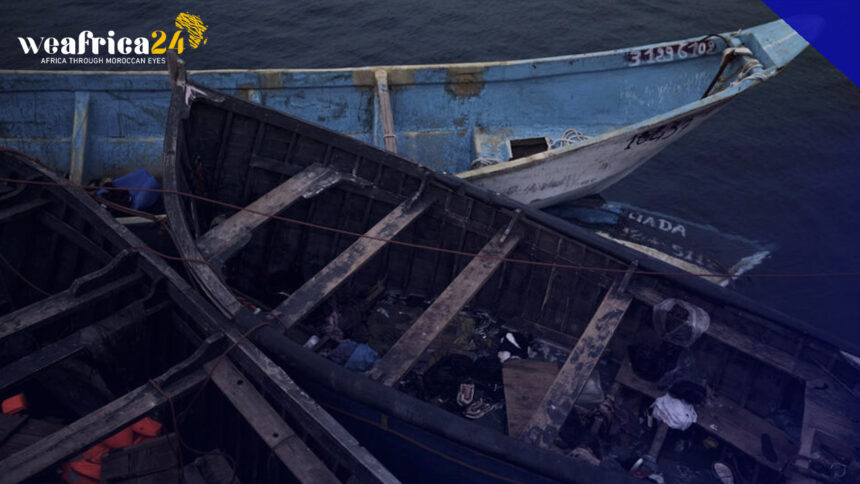Every day, an increasing number of migrants in increasingly overcrowded boats arrive in the Canary Islands. Over 23,000 migrants have reached the Canaries since January, which is an 80% increase compared to the same period last year.
This weekend, between Friday and Sunday, October 22, nearly 1,200 people reached the Spanish archipelago. These makeshift boats departed from the Senegalese coast, taking advantage of favorable weather conditions, according to Spanish emergency services.
Twelve boats arrived in Tenerife and El Hierro, and many of them were described as “overcrowded,” with one boat carrying 321 individuals, primarily men but also women and children.
Photos released by the authorities revealed that some of the boats were small and typically used for coastal fishing, making them ill-suited for the open sea. The Canaries are located approximately 1,600 kilometers from Senegal, and this maritime route is fraught with danger.
Boubacar Seye, the president of the migrant advocacy organization “Horizon without Borders,” believes that the Senegalese authorities are not actively seeking solutions to limit these departures. He expressed a sense of powerlessness in the face of the increasing number of departures, stating, “The state only communicates about interceptions… It’s the economy of justification, it’s all about law enforcement. This strategy cannot work. Therefore, it is necessary for the state to critically reassess itself by addressing the root causes. It is extreme poverty, bad governance, and the obstruction of opportunities for the most vulnerable segments of the population. Additionally, the situation of the artisanal fishing sector has been negatively affected by industrial fishing, illegal and unregulated fishing, and the political situation in Senegal. People have lost hope; there is no more hope. Doubt has permeated our sociocultural environment to such an extent that people believe they can no longer lead dignified lives in this country.”
This migratory route from Africa to the Canary Islands is now the most frequented, as controls have been intensified in the Mediterranean, despite the associated risks.
Since the beginning of October, more than 8,500 migrants have arrived, a record, according to Spanish authorities. The Minister of the Interior, Fernando Grande-Marlaska, attributes this upsurge to the destabilization of the Sahel region.







